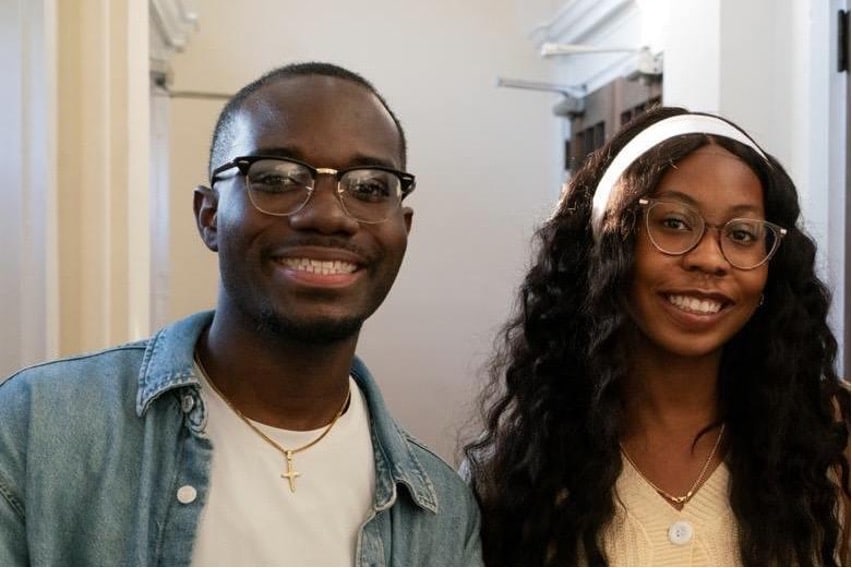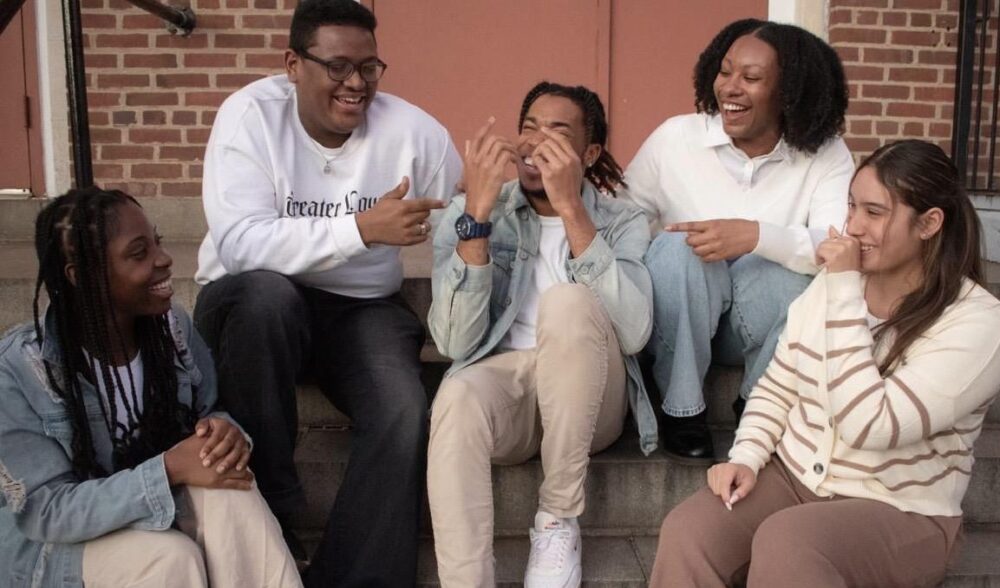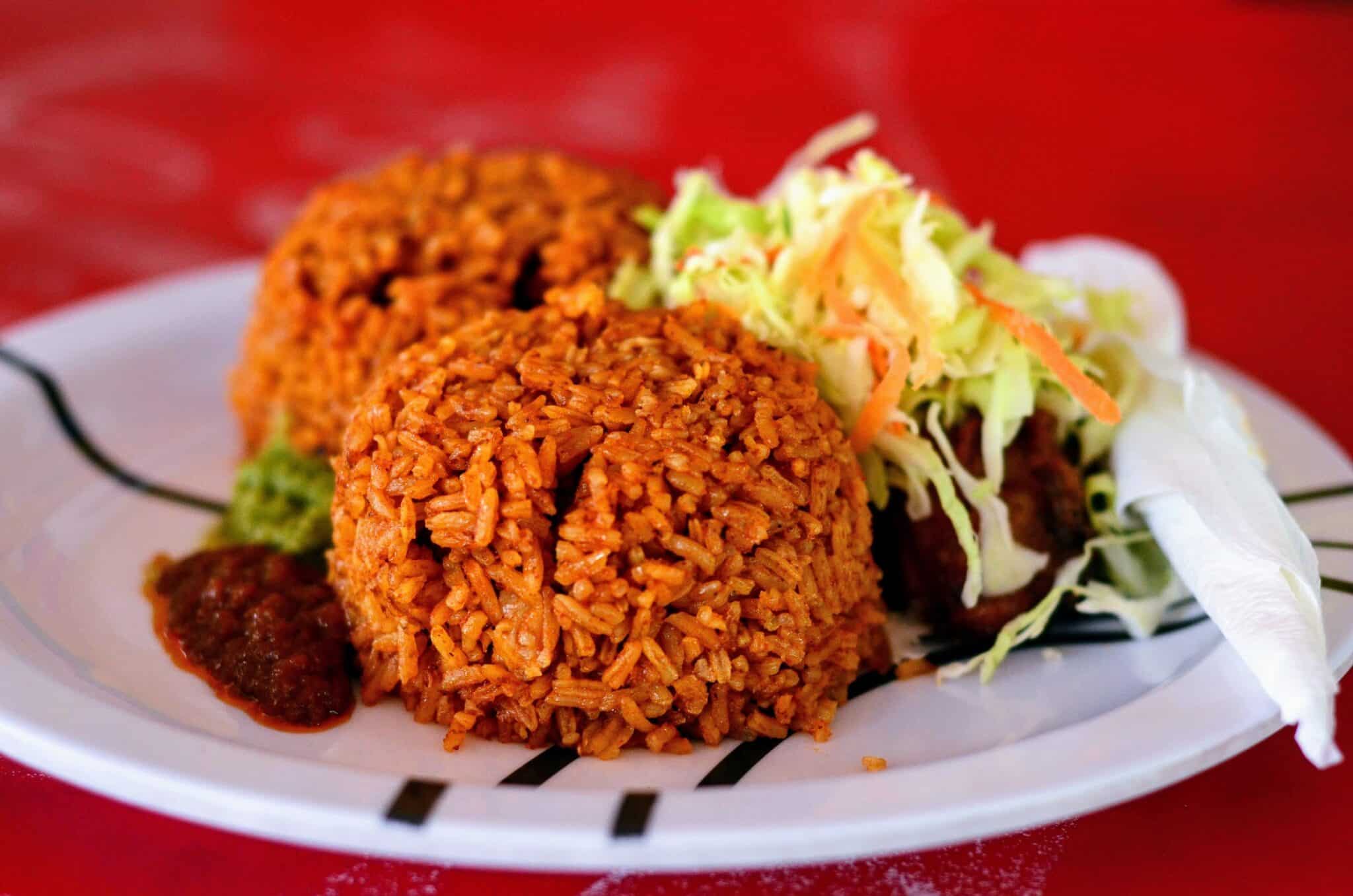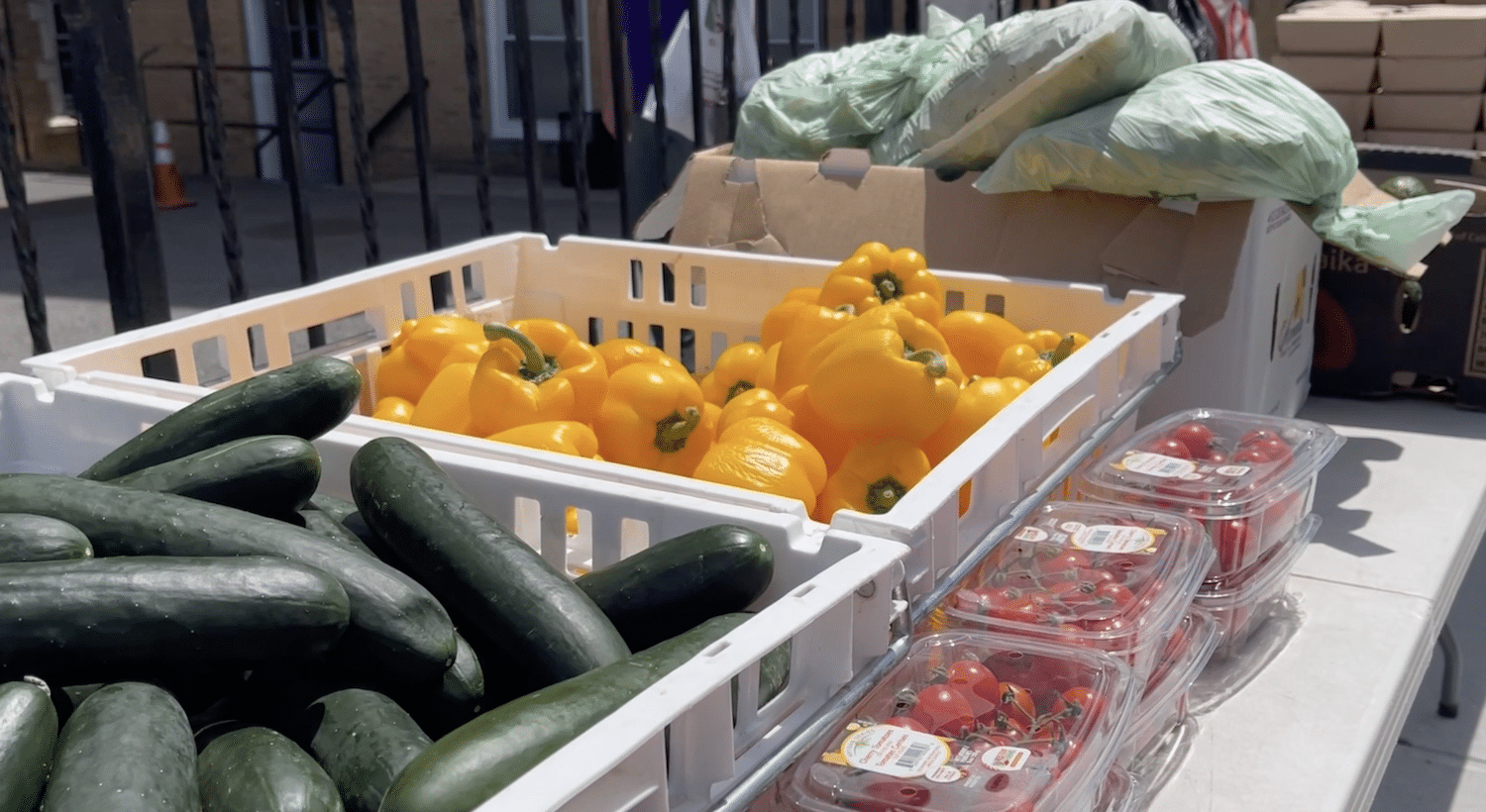Jollof served on a plate with salad as a side. Photo by Noah Alorwu/Creative Commons. https://commons.m.wikimedia.org/wiki/File:Jollof_Rice_with_Stew.jpg?uselang=fr
Voices overlap as small talk fills the lobby of First Love NY church in Forest Hills. One voice seems louder than the rest and people turn around to see what the commotion is about. A small group, off to the side, is in a heated discussion. One man says, “You haven’t even tried ours yet, so how can you be so sure?” More people gravitate toward the group and another man says, “I don’t need to try it to know it sucks. Our Jollof is simply superior.”
The two men had gathered with others after the service to have a drink and socialize, instead they fell into an argument about food.
This congregation is a mix of Nigerian-Americans and Ghanaian-Americans. The issue at hand is that both countries share a rice dish called Jollof, which each makes a slightly different way. It is a very important dish in both West African countries, because it is easy to make and can be served with everything from salad, to eggs, fish, chicken and plantains. The rice is usually cooked with tomato sauce over an open flame, but it is prepared with slight variations in each country. Ghana’s Jollof is less spicy and sweeter than the Jollof of Nigeria and the Jollof of other countries. At First Love NY congregants who generally like each other and get along, disagree passionately about whose Jollof is better.
“I don’t think Nigerian Jollof rice is the best in Africa, but it is definitely better than Ghana’s,” said Besty Ngwachukwu. The 20-year-old Nigerian is a devoted member of First Love. She rarely notices the cultural differences, and has had no issue making friends. Despite feeling welcome and accepted in the church she stands her ground in opposition against Ghanaians’ Jollof. Besty’s decision stems solely from palate preference. “I have tried both,” she said, “The rice we use allows the spice to blend very well without being oversaturated or too soft.”
While Besty makes her choice based on taste, some think of food more emotionally. Peter Sackey, a 19-year-old Ghanaian, praises his country’s Jollof for the special feeling put into it. “I think it’s better because it’s made with love.” Just like Sackey, many feel nostalgic and sentimentality plays a role in whether the Jollof tastes the way that it should.

Peter Sackey in first Love Church Lobby. Photo by Adeshewa Coker.
Despite my decision to remain unbiased during this interview, I could not help but scuff to myself, “YOU would know about watered down Jollof.” My subconscious screamed at me and made me realize this seemed like a relentless rivalry. Although I tried to not get offended, a part of me could not comprehend another individual disliking a dish I have enjoyed my whole life.
Others see the humor in the argument.
Irene Akintimehin is a 20-year- old Nigerian who strongly believes this competition is a long-running joke. “I feel like people are just playing around. It’s really just banter. It’s just a funny thing.” Irene values the cultures separately and believes they should be appreciated independently from one another.
But Besty Ngwachukwu thinks the conversation is a stand for her heritage. “We don’t let anyone bully Ghanaians except us,” she said.
Listening to all of this, trying to keep a straight face, and my blood pressure down, I wonder if the Jollof War in Forest Hills will spread to other communities where Nigerians and Ghanaians share a meal and I will be listening in.

Besty Ngwachukwu to the left, and other church member. Photo by Adeshewa Coker
Tags: Adeshewa Coker Church community First Love NY Church Food wars Forest Hills friendly competition Ghanian-American Ghanian-American Jollof Jollof Jollof Wars Nigerian-American Nigerian-American Jollof
Series: Community






